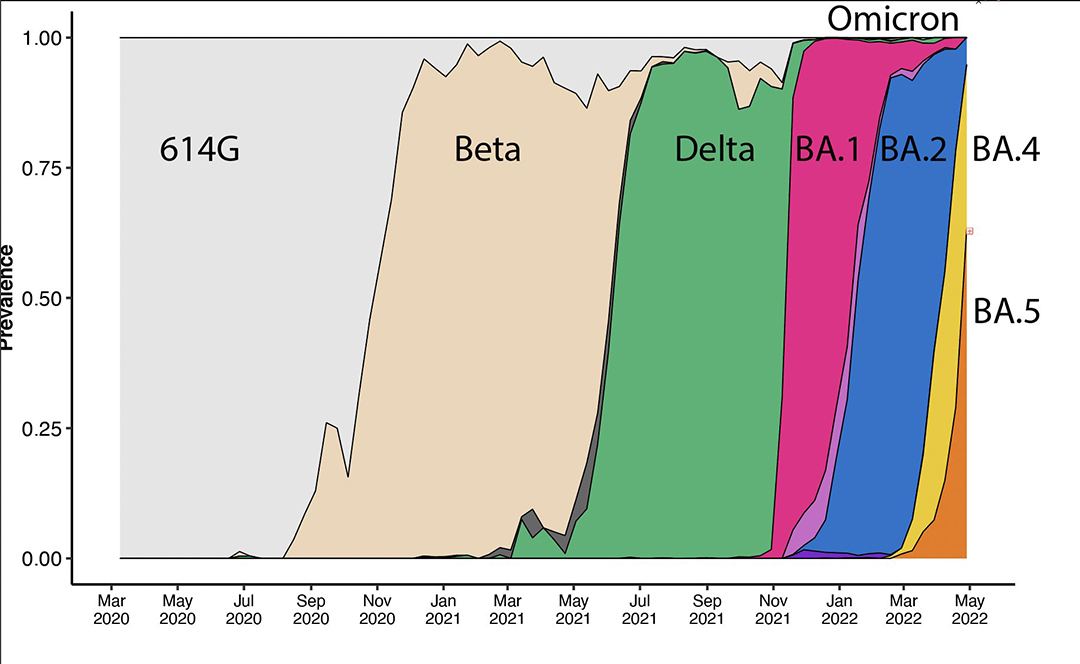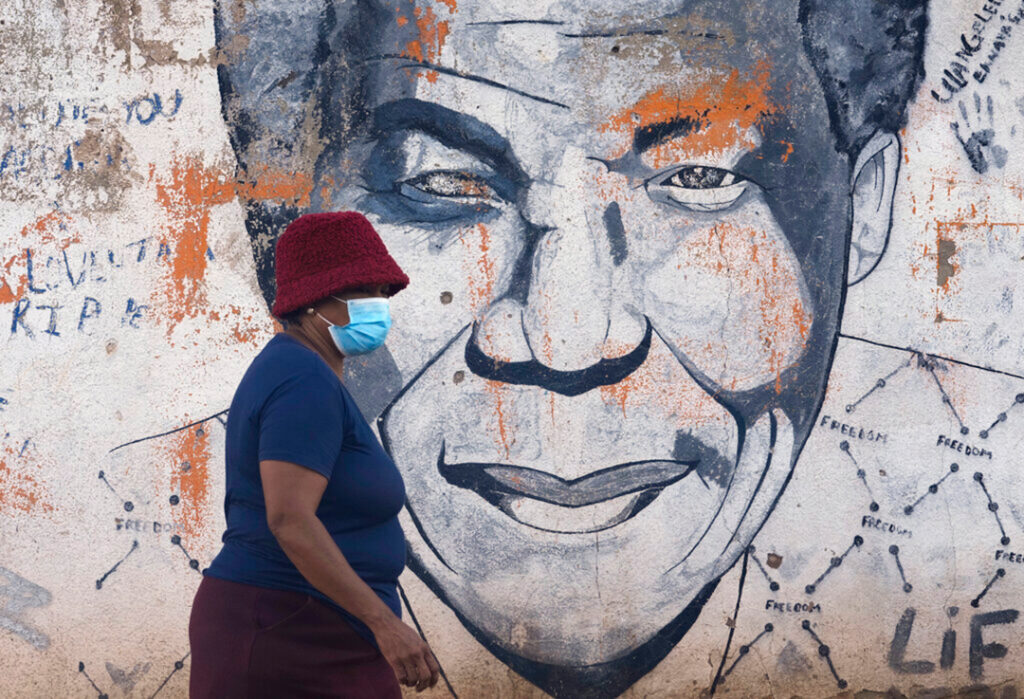ADF STAFF
After repeated monthslong waves of COVID-19, public health experts believe the future of the disease is likely to become a series of short waves that peak quickly and produce fewer deaths.
“This is what is likely to happen and is happening,” South African virologist Dr. Alex Sigal of the Africa Health Research Institute told ADF.
That new outlook is most obvious in South Africa, which is experiencing a sharp rise in new COVID-19 infections driven by the B.A.4 and B.A.5 sublineages of the omicron variant. The two sublineages account for up to 75% of new infections in the country.
Research by South African laboratories show both sublineages are spreading rapidly at rates similar to the original omicron strain first detected in southern Africa in late 2021 and the BA.2 strain that followed in March.
Omicron has proved to be more contagious but less deadly than is predecessors, thanks in part to widespread immunity created by BA.2 strain, which gave rise to BA.4 and BA.5.

“We’re seeing crazy numbers of infections. Just within my lab, I have six people off sick,” Penny Moore, a virologist at the University of the Witwatersrand in Johannesburg, told Nature magazine.
Unlike the delta or beta variants, which took several months to peak, the original omicron variant peaked in a matter of weeks and declined sharply, also a likely result of widespread immunity, Sigal said.
Studies by insurer Discovery Health and other groups suggest more than 80% of South Africans have been exposed to some variant of COVID-19, granting them a degree of natural immunity. The mutations in BA.4 and BA.5 let them overcome immunity in some cases, but immunity factors also tend to keep infections mild, Sigal said.
“Since the last wave was massive and these are subineages, this kind of protection is expected,” Sigal added.
Despite positivity rates at 20% or higher, South Africa has reported fewer people admitted to hospitals than in previous waves, said Dr. Tulio de Oliveira, director of South Africa’s Centre for Epidemic Response and Innovation.
“We believe that the high population immunity of South Africa helped to decrease the effect of the 4th Omicron BA.1 wave and the current, 5th Omicron BA4/5 wave,” de Oliveira recently posted on Twitter. “However, BA4/5 wave of hospitalization is still in the start.”
Hospitalizations are increasing slowly but remain much lower than previous variants.
“The hospitals are empty in South Africa, and we have high population immunity,” de Oliveira told Nature.
The pandemic’s first two years were chaotic in part because variants appeared without warning, he added. The mutations behind BA.4 and BA.5 suggest that COVID-19 may be reaching a point where it becomes more predictable, de Oliveira told Nature.
“These are the first signs that the virus is evolving differently,” he said.

